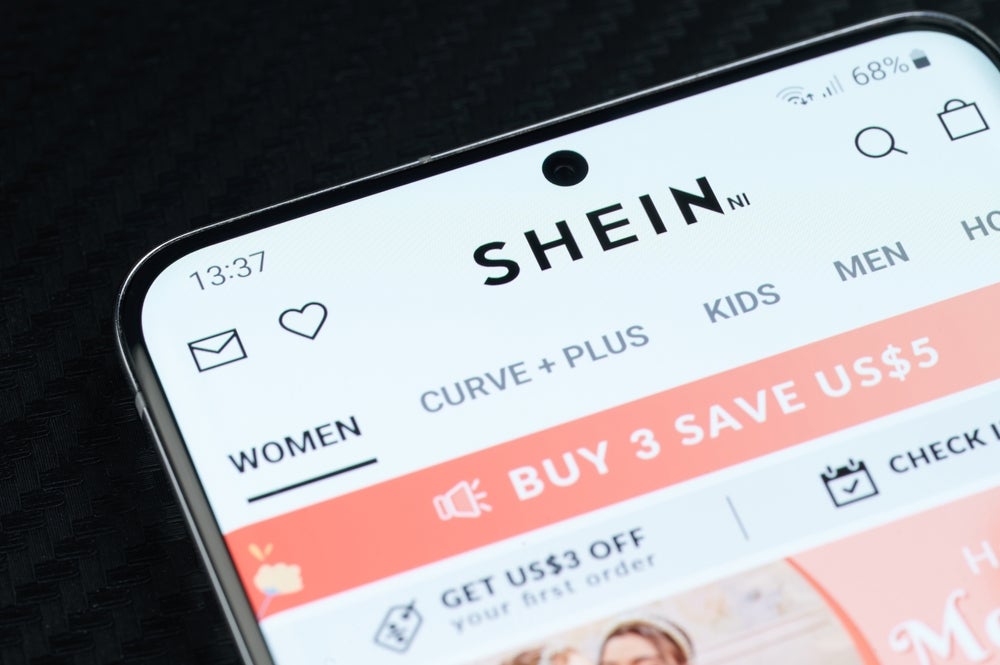
Shein may have launched 15 years ago but in the last few years it has truly become a household name and continues to defy the odds when it comes to selling fast fashion.
Regardless of whether its competitors or indeed global legislators like how it operates, it is undeniable that consumers are repeatedly buying into its speedy and on-trend proposition – and most importantly are happy with the results.
The current economic and socio-political environment should (in theory at least) be hampering with Shein’s trend-led and fast fashion model. We’re living in a world of high inflation which logically should put new clothing down the pecking order of consumers’ priority lists. And we’re living in a world where we’re constantly being reminded about climate change and the fact fast fashion and its supply chain is widely regarded as one of the most polluting industries.
However, at the end of 2022 money.co.uk reported that Shein beat Inditex’s flagship brand Zara to become the world’s most searched fashion brand, according to Google search data. Plus, its TikTok account alone now has 52.2 million likes compared to Zara’s respectable (albeit smaller) 30.9 million.
Being a successful disruptor in any industry arguably means looking at the rulebook and either ripping it up completely or examining the loopholes and using them to your advantage.
It is the latter of course that is frustrating the US Government at the moment. Shein along with Chinese retailer Temu are allegedly using an online shipment loophole that speeds up end delivery to US consumers but does not require forced labour screening. This forced labour screening is deemed essential for all fashion brands to follow under the US Uyghur Forced Labor Prevention Act.
Plus, Shein’s use of this Section 321 of the Tariff Act of 1930, which is known as the de minimis rule also allows it to avoid customs duties on incoming packages that are valued at less than $800 so it arguably gives the retailer a clever but arguably unfair cost-saving advantage over its competitors.
Regardless of whether you believe Shein should or should not be using this loophole (and it might not exist for much longer given the US is honing in on it); it is the perfect demonstration of how Shein successfully looks beyond the traditional fashion supply chain model and keep focuses on keeping its end consumers happy with a speedy and cost-effective product offering.
Similarly, Lever Style’s chairman Stanley Szeto told Just Style Shein has created a revolutionary supply chain that the rest of the fashion industry can learn from.
He focused on Shein’s so-called genius way of creating garments quickly and in small batches and explained Shein has automated a lot of its manual processes such as information management which given the rise of generative AI could be something others could explore too.
Szeto openly admitted Shein’s factory operations work and the rest of the fashion supply chain should be working towards this too – it’s about making items quickly in small batches and it drastically improves competitiveness, reduces waste and discount markdowns.
Whichever way you look at it and regardless of whether you agree with Shein’s methods, it is quickly becoming the ‘Uber’ of the fashion supply chain world and it has become the brand everyone is keen to watch.
Who knows what Shein will do as and when the de minimis loophole is closed but I’m sure it will continue to keep us all firmly on our toes and perhaps that’s a good thing?
Top news stories on Just Style last week
Temu, Shein leveraging online shipment loophole to evade forced labour checks – US report
Chinese ultra-fast fashion brand Shein has rejected claims made in a US Committee report – which also alleged its competitor Temu – leverage an online shipment loophole that does not require forced labour screening.
Lever Style, Shein’s secret to outperforming the fashion market in 2023
Lever Style’s executive chairman Stanley Szeto and chief operating officer William Tan reveal their tricks for outperforming the struggling fashion market in 2023 as well as what we can learn from Shein and Zara’s revolutionary fashion supply chains.
German fashion retailer Zalando sues EU over landmark Digital Services Act
Zalando is the only European company on the EU’s list of companies designated as “Very Large Online Platforms”.
Garment union rep murder ‘immense loss for Bangladesh labour movement’
Both labour union NGO, the Clean Clothes Campaign and Bangladesh Garment Manufacturers and Exporters Association (BGMEA) are urging the Bangladesh Government to investigate the murder of garment union leader Shahidul Islam.
Nike debuts new adaptive, breathable apparel technology
US sportswear brand Nike says its all-new performance apparel technology Aerogami transforms in real time to keep runners cool.



